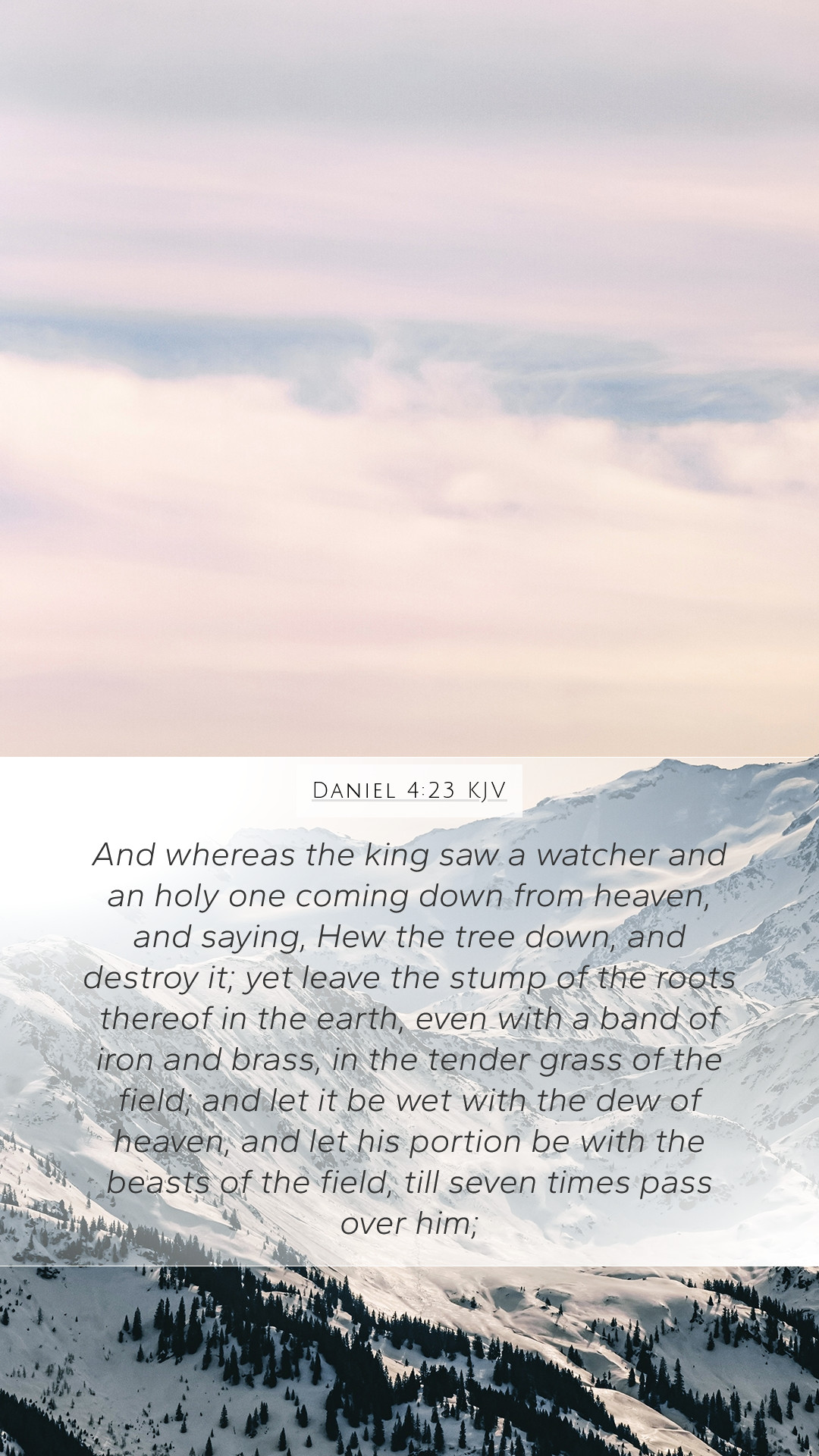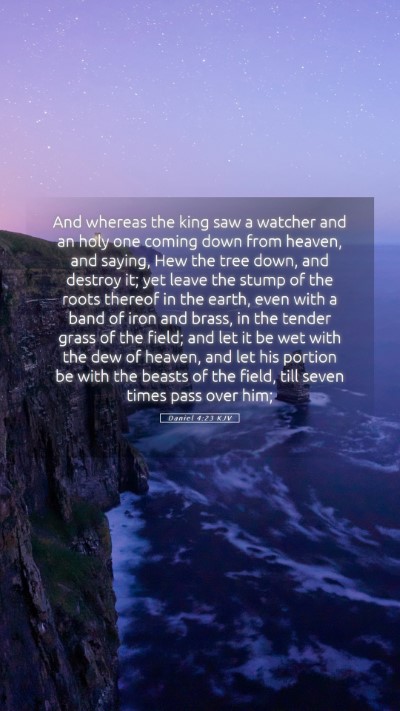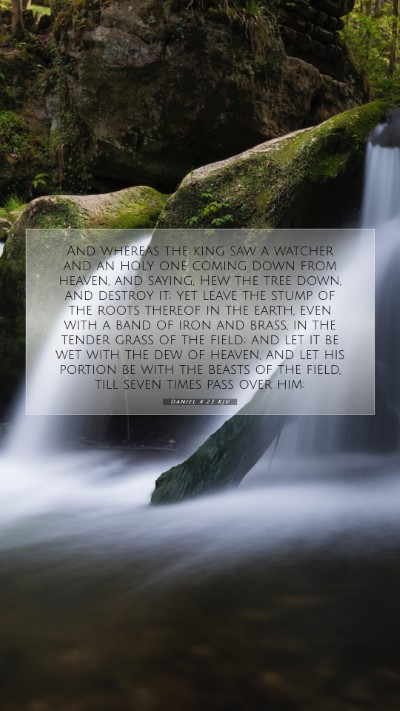Bible Verse Commentary on Daniel 4:23
Verse: "And whereas the king saw a watcher and an holy one coming down from heaven, and saying, Cut down the tree, and destroy it; yet leave the stump of the roots in the earth, even with a band of iron and brass, in the tender grass of the field; and let it be wet with the dew of heaven, and let his portion be with the beasts in the grass of the earth." - Daniel 4:23
Meaning of the Verse
This verse is a pivotal part of Nebuchadnezzar's dream, which Daniel interprets, where a divine decree is issued regarding the fate of the king. The "watcher" represents an angelic being sent by God, highlighting the celestial oversight of earthly matters. The command to "cut down the tree" symbolizes the removal of Nebuchadnezzar's earthly power and pride resulting from his arrogance.
Bible Verse Explanations
Insights from Public Domain Commentaries
- Matthew Henry: He emphasizes that this verse signifies God's sovereignty over earthly kingdoms. Henry suggests that the 'tree' represents Nebuchadnezzar's might and influence, which, despite being cut down, will not be wholly destroyed, as indicated by the "stump" that remains. This points to the idea of potential restoration after divine judgment.
- Albert Barnes: Barnes points out that the "watcher" indicates an authoritative declaration from heaven. He argues that the act of leaving the stump shows mercy even in judgment. This verse reflects God's justice and mercy, suggesting that power can be taken away, yet there is an opportunity for renewal and humility.
- Adam Clarke: Clarke notes that the 'binding' of the stump with "iron and brass" reflects both protection and punishment. Such materials signify strength, suggesting that even in a state of debilitation, there is an element of power that can be rehabilitated. Clarke connects this to themes of humility, illustrating how Nebuchadnezzar must learn a lesson of dependence on God.
Scripture Analysis
This verse invites readers into deeper biblical study insights. It demonstrates how divine messages permeate human history, guiding nations and individuals alike. The imagery of the tree serves as a rich symbol in biblical literature, often representing strength, growth, and prosperity, but here it also reveals the transient nature of such power when placed against divine authority.
Application of the Verse
Understanding Scripture like Daniel 4:23 can help believers recognize the importance of humility in their lives. The text serves as a reminder that true greatness comes from servitude to God's plan rather than earthly pride or glory. Individuals engaged in Bible study groups can reflect on how humility is essential for spiritual growth.
Cross References
- Isaiah 2:11-12 - On the day of the Lord's judgment, human pride will be humbled, and the Lord alone will be exalted.
- Matthew 23:12 - Whoever exalts himself will be humbled, and whoever humbles himself will be exalted.
- James 4:10 - Humble yourselves before the Lord, and he will exalt you.
Conclusion
The study of Daniel 4:23 offers profound biblical exegesis, encouraging believers to seek his wisdom through scriptural meditations. Whether through online Bible study platforms or traditional Bible study lessons, such analysis fosters a deeper understanding of the character of God and his dealings with mankind throughout history.


